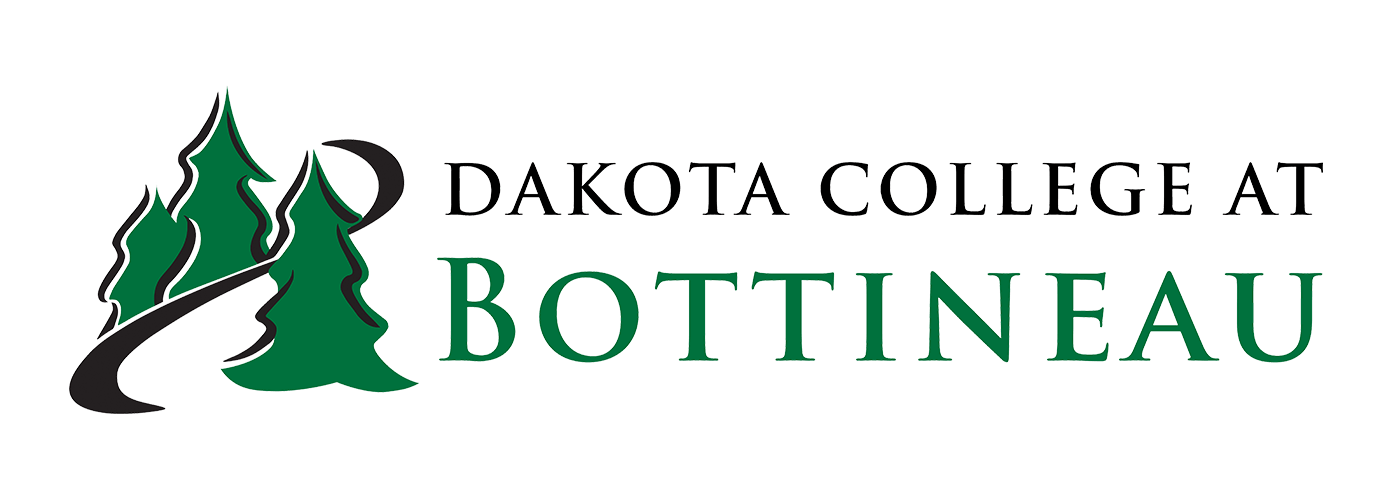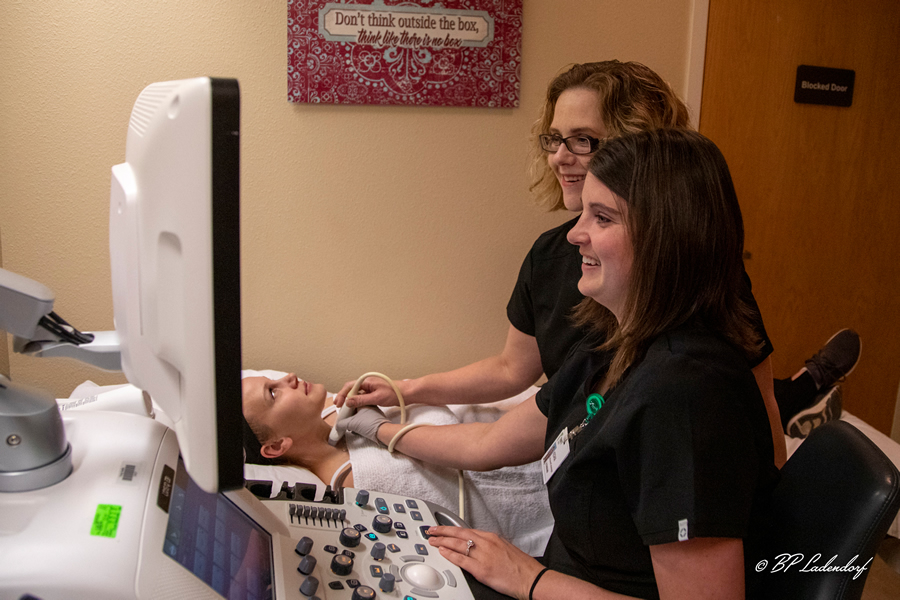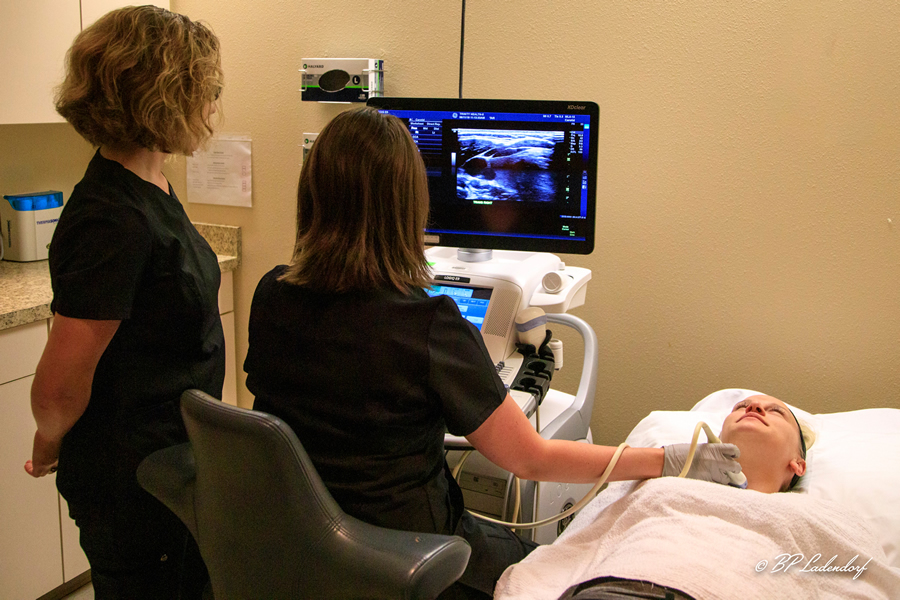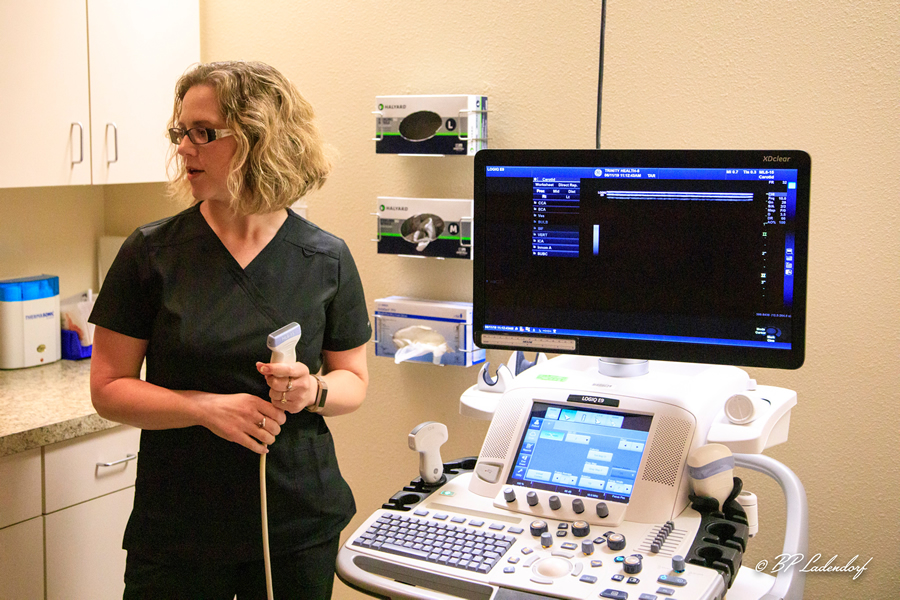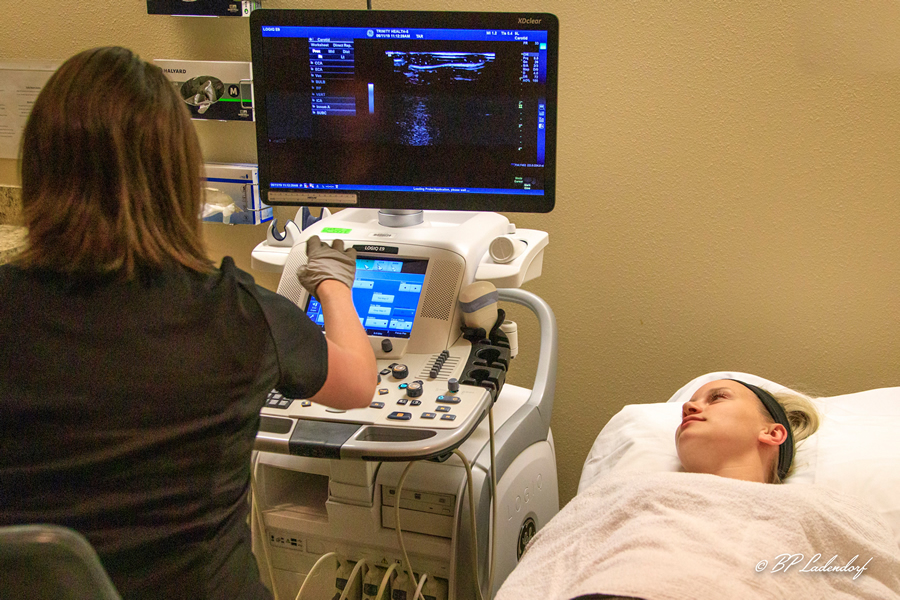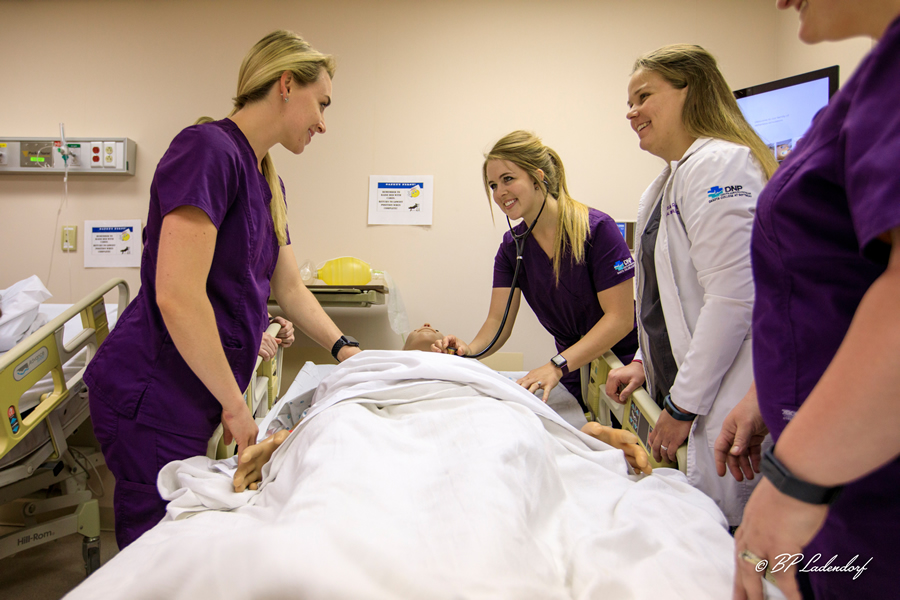| Bottineau | Minot | Valley City | Online |
|---|---|---|---|
|
|
✓ |
|
|
✓ A check mark denotes that a majority of the classes are available at that campus location or online. If you have any questions please contact the advisor listed below on this page.
The Associate of Applied Science (AAS) in Diagnostic Medical Sonography (DMS) will prepare students for a dynamic career in sonography (ultrasound). Professionals in DMS, also known simply as sonographers, use sound waves to obtain images of organs and tissues in the body. During an ultrasound examination, the sonographer places a device called a transducer in contact with the patient’s body. The transducer emits high frequency sound waves that pass through the body, sending back “echoes” as they bounce off organs and tissue. Specialized equipment then converts those echoes into visual data in the form of medical images, depicting the anatomy of interest.
Why study diagnostic medical sonography?
Sonography students are trained to acquire and analyze produced sonographic images for diagnostic image quality and submit them to a qualified physician for interpretation. These images are then used to help doctors diagnose and treat many medical conditions. Since ultrasound is a non-invasive way to visualize internal organs, it is often the first imaging test performed when a disease is suspected. Therefore, sonographers have an important role in conducting and interpreting initial tests that may help narrow down a patient’s diagnosis and quickly get them the medical care they need. The DMS program prepares individuals to have foundational skills and knowledge of human anatomy and pathology, ultrasound physics, equipment operation and safe, quality patient care.
Career choices
Sonographers practice in hospitals, clinics and physician’s offices, and in many clinical specialties. They are often found performing ultrasound procedures at a patient’s bedside, but also may work with imaging equipment in a dedicated room within the hospital or clinic. Most diagnostic sonographers work full time, and some may be assigned to work evenings, weekends or on holidays depending on their employer. Often the role requires being on your feet for most of the work day.
Focused courses for your degree
This program focuses on general abdominal, obstetric and gynecological sonography courses. Ultrasound physics and instrumentation, abdominal, obstetric, gynecologic, vascular sonographic imaging procedures and patient care will be studied. Clinical laboratory and practicum (hands on) experiences will be included in the educational plan.
Credential: Registered Diagnostic Medical Sonographer (RDMS)
The American Registry of Diagnostic Medical Sonography (ARDMS) administers a national certification examination. DMS students are eligible to apply for the Sonography Physics and Instrumentation (SPI) examination during the last semester of the program. Once successfully passing the SPI, graduates are then eligible to apply for the Abdomen (AB), and/or Obstetric/Gynecologic (OB/GYN) specialty examinations. After initial certification, registrants must earn 30 continuing education credits every three years to maintain registration of their certification(s).
State Licensure Requirements:
The DMS program provides educational eligibility for state licensure in North Dakota. https://www.ndmirtboard.com/lic/index.asp
There are four states that require licensing for sonography:
- New Hampshire
- New Mexico
- North Dakota
- Oregon
These states require licensure applicants to provide a current registry card as documentation of registration and certification in sonography. The DMS program graduates are eligible to apply for a two-year Conditional License in North Dakota if they are working toward completing the appropriate registry(s) in sonography. https://www.ndmirtboard.com/www/download_resource.asp?id=704
Contact Information for Other Licensing Boards:
- American Samoa Official Portal of the Government - https://www.americansamoa.gov/
- Northern Mariana Islands Health Care Professions Licensing Board (HCPLB) - https://www.cnmilicensing.gov.mp/health-care-professions-licensing-board/
- Guam Board of Examiners for Allied Health - https://guamhplo.org/boards-commissions/hplo/guam-board-allied-health-examiners
- Puerto Rico Department of Health - http://www.salud.gov.pr
- Virgin Islands Department of Health - https://doh.vi.gov/office-of-professional-licensure-and-health-planning/
- Federated States of Micronesia (FSM) Department of Health & Social Affairs - https://hsa.gov.fm/
- Marshall Islands Ministry of Health and Human Services - https://rmihealth.org/
- Palau Ministry of Health - https://www.palauhealth.org/
Be Advised

Amy Hofmann
amy.hofmann@dakotacollege.edu
701-857-5620
